Europe Needs a Complete Strategic Reboot
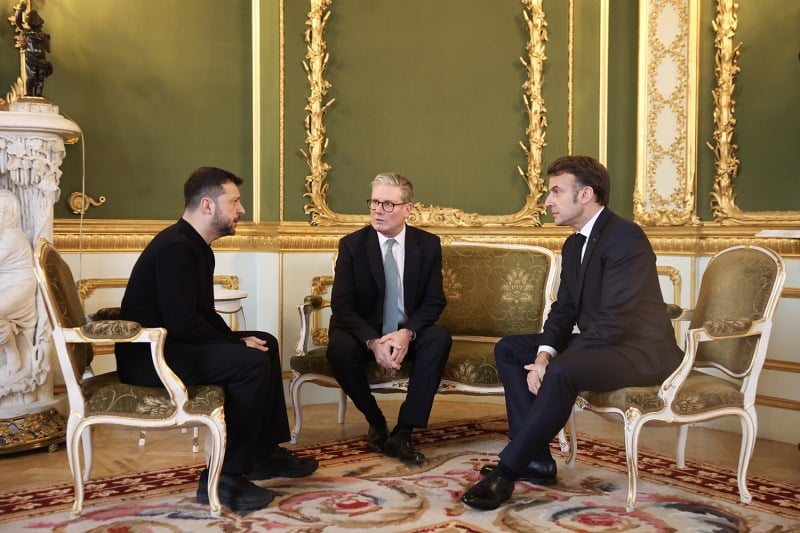
Europe Needs a Complete Strategic Reboot
If the continent’s leaders can’t make tough choices themselves, they should let their citizens make those decisions for them.
British Prime Minister Keir Starmer, center, speaks with Ukrainian President Volodymyr Zelensky, left, and French President Emmanuel Macron as he hosts a European leaders’ summit at Lancaster House in London on March 2. Simon Dawson / No 10 Downing Street / Handout/ Anadolu via Getty Images
Two statements by European leaders put side by side capture the essence of the European dilemma today. Former German Chancellor Angela Merkel famously said in 2012, “If Europe today accounts for just over 7 percent of the world’s population, produces around 25 percent of global GDP, and has to finance 50 percent of global social spending, then it’s obvious that it will have to work very hard to maintain its prosperity and way of life.” More recently, Polish Prime Minister Donald Tusk said, “Right now, 500 million Europeans are begging 300 million Americans for protection from 140 million Russians who have been unable to overcome 50 million Ukrainians for three years.”
When European leaders “bravely” decided to stand up to the Russian invasion of Ukraine, they also promised their people, more implicitly than explicitly: “Please don’t worry. You won’t have to make personal sacrifices. If necessary, we will borrow from future generations. We won’t cut your benefits. We won’t raise your taxes.” Just as importantly, the Europeans felt courageous because they assumed that under no circumstances would the United States ever abandon Europe. It was an assumption that showed how naive Europe’s leaders had become. They had forgotten a cardinal rule of geopolitics: Never plan against best-case scenarios; always plan against worst-case scenarios. To be fair, the person who highlighted this geopolitical naivete to me was Henry Kissinger, in a one-on-one conversation I had with him in October 2022.
Two statements by European leaders put side by side capture the essence of the European dilemma today. Former German Chancellor Angela Merkel famously said in 2012, “If Europe today accounts for just over 7 percent of the world’s population, produces around 25 percent of global GDP, and has to finance 50 percent of global social spending, then it’s obvious that it will have to work very hard to maintain its prosperity and way of life.” More recently, Polish Prime Minister Donald Tusk said, “Right now, 500 million Europeans are begging 300 million Americans for protection from 140 million Russians who have been unable to overcome 50 million Ukrainians for three years.”
When European leaders “bravely” decided to stand up to the Russian invasion of Ukraine, they also promised their people, more implicitly than explicitly: “Please don’t worry. You won’t have to make personal sacrifices. If necessary, we will borrow from future generations. We won’t cut your benefits. We won’t raise your taxes.” Just as importantly, the Europeans felt courageous because they assumed that under no circumstances would the United States ever abandon Europe. It was an assumption that showed how naive Europe’s leaders had become. They had forgotten a cardinal rule of geopolitics: Never plan against best-case scenarios; always plan against worst-case scenarios. To be fair, the person who highlighted this geopolitical naivete to me was Henry Kissinger, in a one-on-one conversation I had with him in October 2022.
Today, Europe’s leaders strongly believe that they are in a geopolitical mess because they have been stabbed in the back by U.S. President Donald Trump. Actually, Trump has been more upfront with his people than European leaders have been with theirs. Trump has asked honestly: Why should we Americans sacrifice for the rich Europeans? By contrast, Europe’s leaders have never been honest with their own people.
One famous statement that is often cited is by Jean-Claude Juncker, the former president of the European Commission: “We all know what to do,” he said. “We just don’t know how to get reelected after we’ve done it.” European leaders chuckle when they say this as it reinforces their conviction that they are smarter than their own people. In reality, this statement exposes their cowardice. European leaders are afraid of sacrificing their own political careers for the public good.
Unfortunately, thanks to Trump, European leaders can no longer lie to their people. They have to confront their populations with some hard choices: Stand up to the Russian invasion of Ukraine by making sacrifices—which could include cuts in entitlements, raising taxes, and conscription—or compromise with Russia and keep your lifestyles. Amazingly, no European leaders (except the Polish, who are considering military training for their male population) have forced these hard choices upon their own people. Instead, they keep looking for soft options such as borrowing from future generations by raising the debt limit.
European leaders are also pushing for the confiscation of frozen Russian assets as an alternative soft option. This would be disastrous. It would erode global confidence in keeping assets with Europe. In the eyes of the vast majority of the world’s population, this would be seen as a straightforward theft of Russian assets because the seizure would not have been endorsed under international law. Any European who doubts this should ask a simple question: Why hasn’t countries representing 85 percent of the world’s population joined the West in imposing sanctions on Russia?
The most honest thing that European leaders could do with their own populations is to organize open and honest referenda and get their people to make the really hard choice: Stand up to Moscow with painful personal sacrifices or compromise and support a “neutral” Ukraine as a buffer between Russia and Europe. It’s possible that Europeans may choose the first painful option. But it’s unlikely. They are shrewd enough to realize that Europe’s best option is to compromise with its eternal neighbor, Russia.
If Europe’s leaders had been geopolitically shrewd instead of naive, they should have grabbed the opportunity provided by Trump’s decision to talk to Vladimir Putin to immediately begin their own independent talks with the Russian president. In geopolitics, it’s always wise to increase your options. Trump is being smart in talking to everyone. The Europeans are boxing themselves in by talking only to Ukrainian President Volodymyr Zelensky, not Putin.
This doctrinaire approach reflects the most important geopolitical mistake that Europe is making as the world transitions to a new multipolar order: It refuses to accept the hard reality that the time has come for Europe to make some painful U-turns from past assumptions and realities and consider “unthinkable” options (as I spelled out in an earlier Foreign Policy essay).
Curiously, if Europe were to attempt a dramatic break from the past and move from being an American satellite toward being an independent and autonomous strategic actor, it would significantly enhance its options in our new geopolitical order: It could regain access to cheap Russian energy; engage China in an independent fashion; and work with the global south in creating independent options as the great powers jostle for their own advantage.
In short, what Europe needs is nothing less than a complete strategic reboot, which will require it to reexamine all its current assumptions about our world order. A good way to begin this strategic reboot is for European leaders to ask their populations to make the hard choices. It’s more than likely that the European people will choose more wisely than their leaders have in recent times and advocate for pragmatism and compromise in dealing with difficult geopolitical choices.
Kishore Mahbubani, a distinguished fellow at the National University of Singapore’s Asia Research Institute, is the author of Has China Won? The Chinese Challenge to American Primacy. X: @mahbubani_k
More from Foreign Policy
-

Zelensky stands before four Ukrainian flags; cameras are pointed at him. It’s Time for Ukraine to Accept an Ugly Peace
Seven things for Zelensky to keep in mind as cease-fire negotiations start.
-

Then-presidential candidate Donald Trump speaks before a capacity crowd at a rally for his campaign on April 10, 2016 in Rochester, New York. Trump Is Not a Revolutionary
Not all political upheaval is created equal.
-

German soldiers unload the U.S.-made MIM-104 Patriot surface-to-air missile system in Jasionka, Poland. The Latest Russian Missile Is Bad News for NATO
Oreshnik is a different beast from its predecessors.
-

French Emperor Napoleon Bonaparte leads the final assault by the Imperial Guard before his defeat at the Battle of Waterloo in what is today Belgium, on June 18, 1815. The Cost of Ignoring Geopolitics
Like Napoleon and the Ming dynasty, Europe is paying the price for strategic blindness.
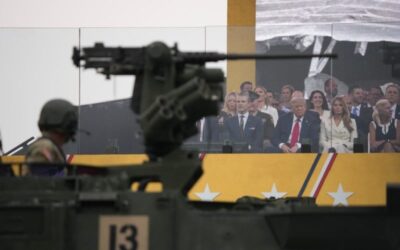


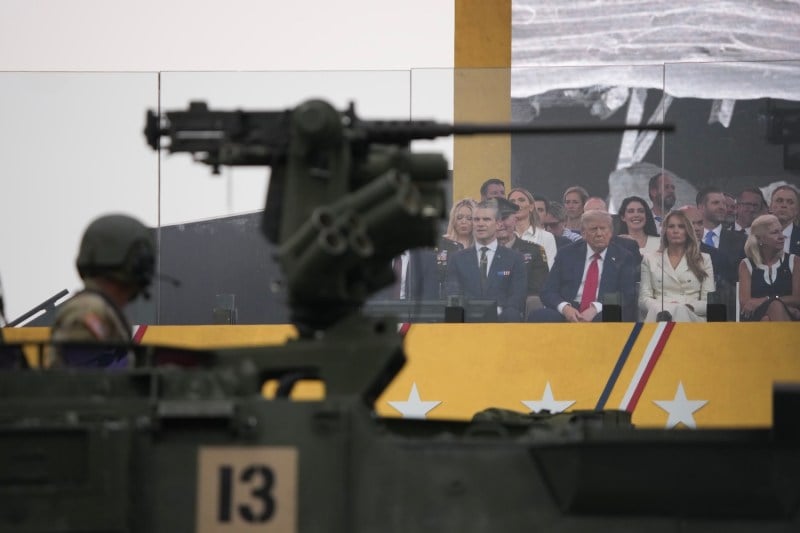

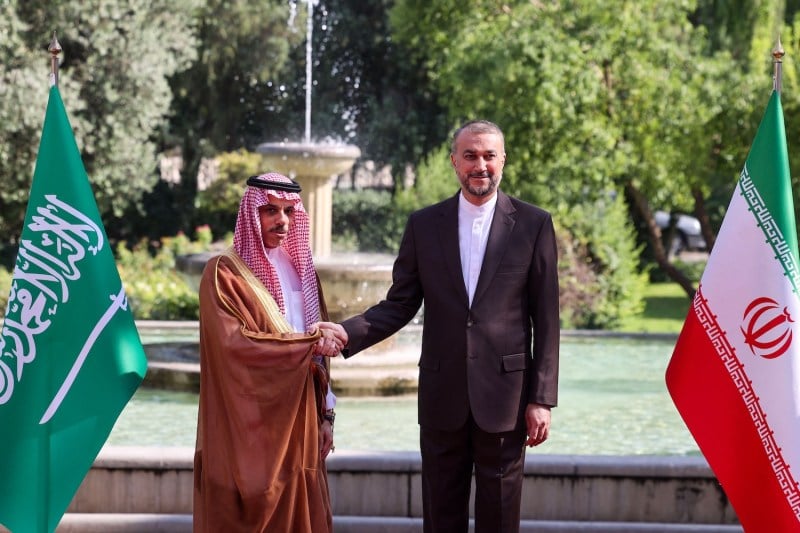
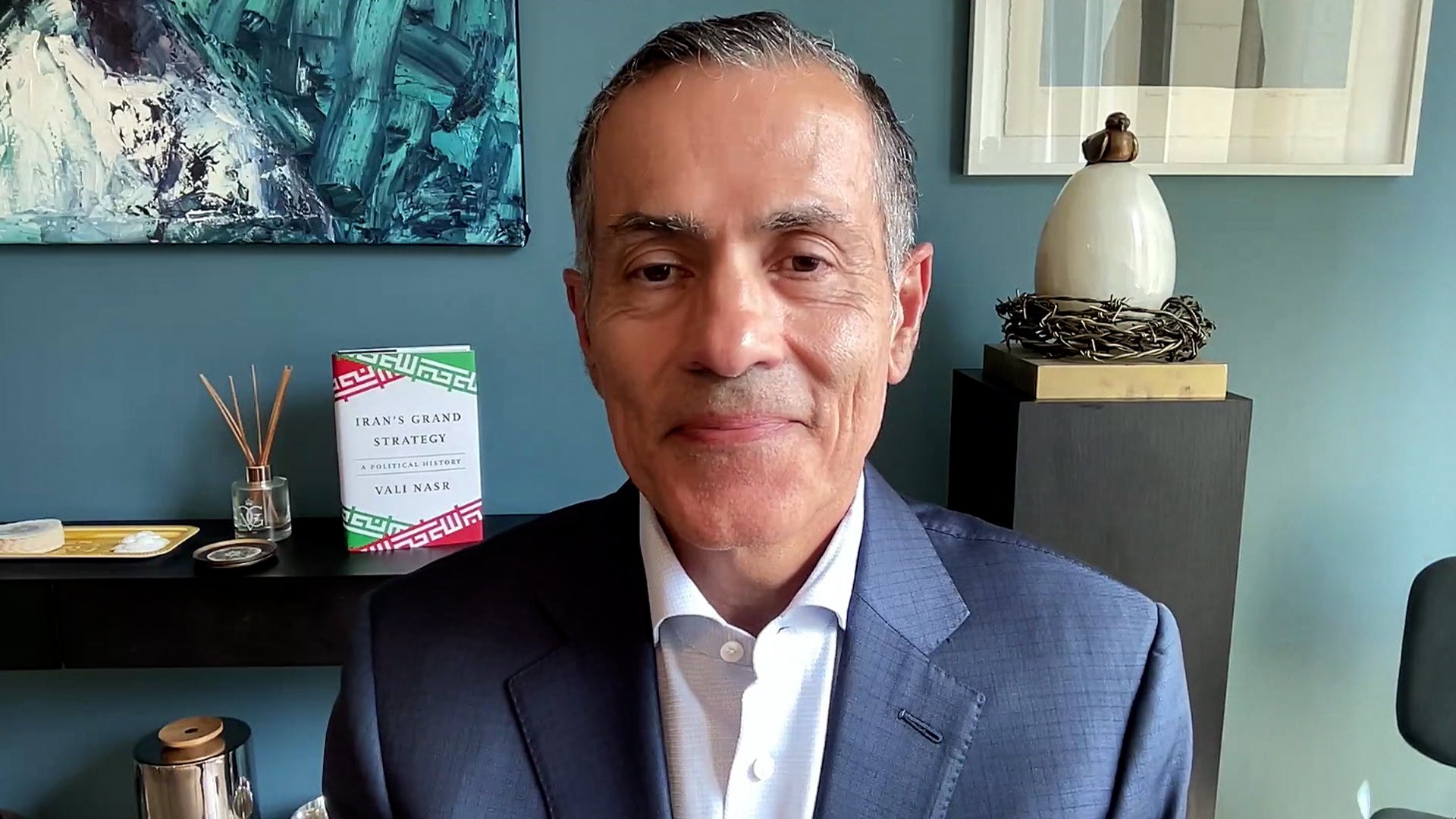
Join the Conversation
Commenting on this and other recent articles is just one benefit of a Foreign Policy subscription.
Already a subscriber?
.
Subscribe
Subscribe
View Comments
Join the Conversation
Join the conversation on this and other recent Foreign Policy articles when you subscribe now.
Subscribe
Subscribe
Not your account?
View Comments
Join the Conversation
Please follow our comment guidelines, stay on topic, and be civil, courteous, and respectful of others’ beliefs.
Change your username |
Log out
Change your username:
CANCEL
Confirm your username to get started.
The default username below has been generated using the first name and last initial on your FP subscriber account. Usernames may be updated at any time and must not contain inappropriate or offensive language.